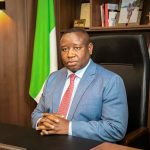Politics
Sierra Leone Politics
This page explores Sierra Leone’s political structure incorporating real-time RSS feed news and videos. By harnessing the power of RSS feeds, visitors can stay informed about the latest developments in Sierra Leone’s politics as they happen. The dynamic nature of these feeds ensures that users receive up-to-the-minute updates on political events, policy changes, and significant milestones, enabling them to stay abreast of the ever-evolving political scene.

Julius Maada
President of Sierra Leone
Incumbent
Assumed office
4 April 2018
Image credit
Sierra Leone, located in West Africa, operates as a constitutional republic with a multi-party system. The country has made significant strides in its political development since the end of a devastating civil war in 2002, and it has held several successful elections since then.
Sierra Leone’s political landscape is characterized by a competitive multi-party system, with various political parties representing different interests and ideologies. The two major parties are the All People’s Congress (APC) and the Sierra Leone People’s Party (SLPP), which have alternated in power over the years. Other parties, such as the National Grand Coalition (NGC) and the Coalition for Change (C4C), also play significant roles.
The President of Sierra Leone, elected by popular vote for a five-year term, serves as the head of state and government. The Parliament, known as the House of Parliament, is the country’s legislative body, consisting of elected representatives. Sierra Leone has made progress in strengthening democratic institutions, promoting good governance, and improving the rule of law. The country has taken steps to ensure free and fair elections, enhance transparency, and combat corruption. Institutions such as the National Electoral Commission and the Anti-Corruption Commission have been established to uphold democratic principles and address governance challenges.
However, Sierra Leone faces significant challenges in areas such as poverty reduction, healthcare, education, and infrastructure development. The country continues to recover from the effects of the civil war and grapples with socioeconomic disparities. Efforts to improve public service delivery, expand access to quality education and healthcare, and promote economic diversification are ongoing priorities. Sierra Leone is also addressing issues related to youth empowerment, gender equality, and sustainable development. The government has been proactive in engaging with international partners, including the United Nations and regional organizations, to receive support in areas such as peacebuilding, development, and capacity building.
Ensuring political stability, consolidating democratic institutions, and promoting inclusive governance are crucial for Sierra Leone’s continued progress. The country’s commitment to upholding democratic values, addressing socioeconomic challenges, and promoting social cohesion will be essential in shaping its political landscape and fostering sustainable development.
Unless other sources are listed, original content is provided by ChatGPT. ChatGPT may produce inaccurate information about people, places, or facts. #SierraLeone #SierraLeonePolitics #SierraLeoneNews #SierraLeoneNewsToday #SierraLeoneRSSFeed #BlahFace



